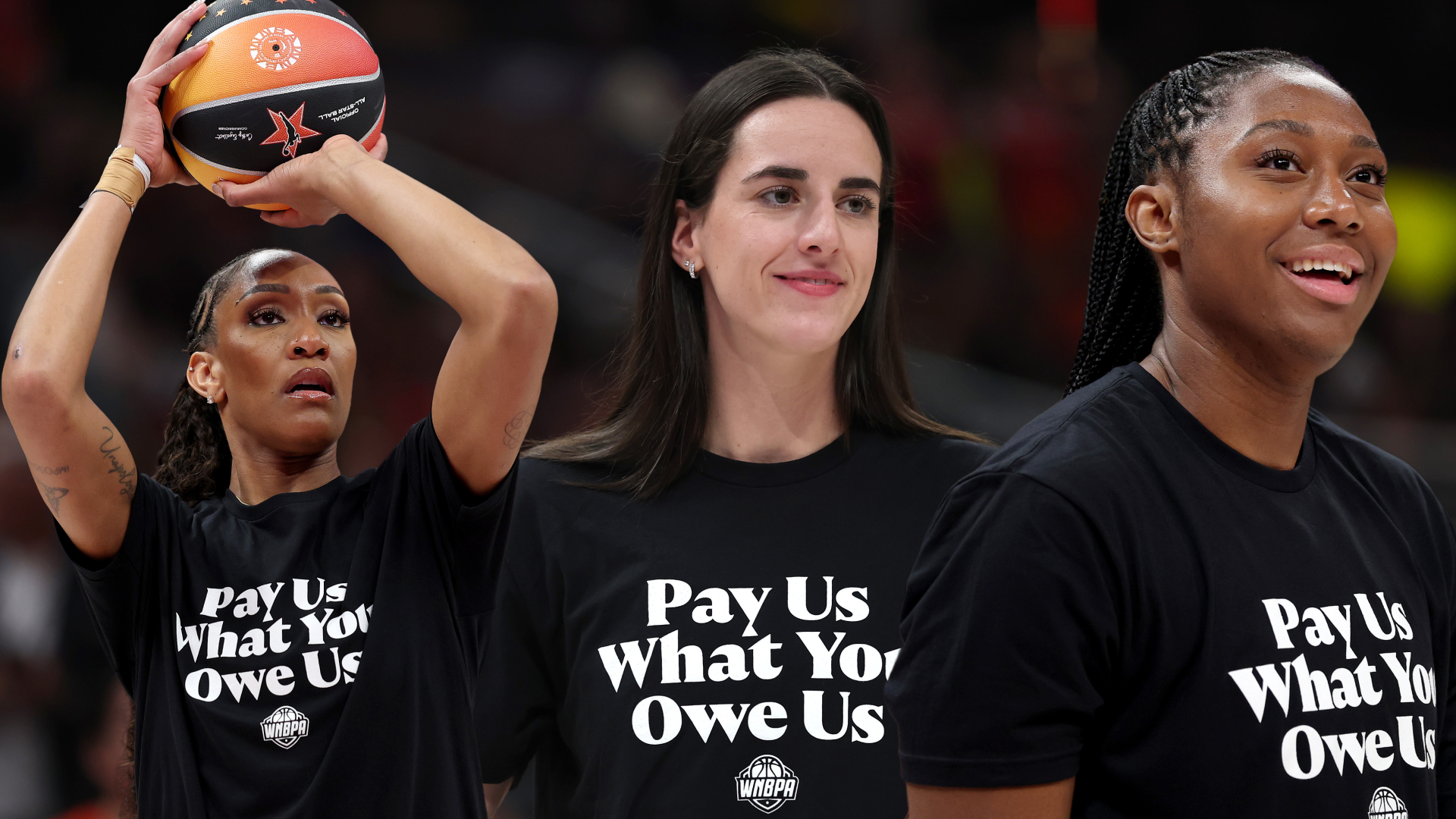You’d be forgiven for confusing the 2025 WNBA All-Star Weekend in Indianapolis, Indiana, for New York Fashion Week. Players and fans filed into Gainbridge Fieldhouse, home of the Indiana Fever, dressed in outfits earning the “W,” as fans call it—the league’s top in fashion. Caitlin Clark, a Prada girl since last year’s draft, wore the label head-to-toe. Kelsey Plum tapped celebrity stylist Karla Welch for a Loewe look. Rookie breakout Paige Bueckers layered Burberry pieces, while Angel Reese sourced vintage luxury from What Goes Around Comes Around. Even WNBA legend Lisa Leslie wore Kallmeyer—whose founder, Daniella Kallmeyer, styles the NYC Liberty’s coach, Sandy Brondello—to sit court-side.
The tone of the fashion conversation shifted once the July 19 All-Star Game’s warm-up started. When players like A’ja Wilson and Sonia Citron began shooting baskets, they left the designer pieces turning the W’s tunnel walks into a cultural phenomenon. Instead, every player and coach wore plain black T-shirts with a message, courtesy of the Women’s National Basketball Players’ Association: “Pay Us What You Owe Us.”
A’ja Wilson, left, and Jackie Young were among the the 2025 WNBA All-Star Game players who warmed up in “Pay Us What You Owe Us” T-shirts.
(Image credit: Getty Images)
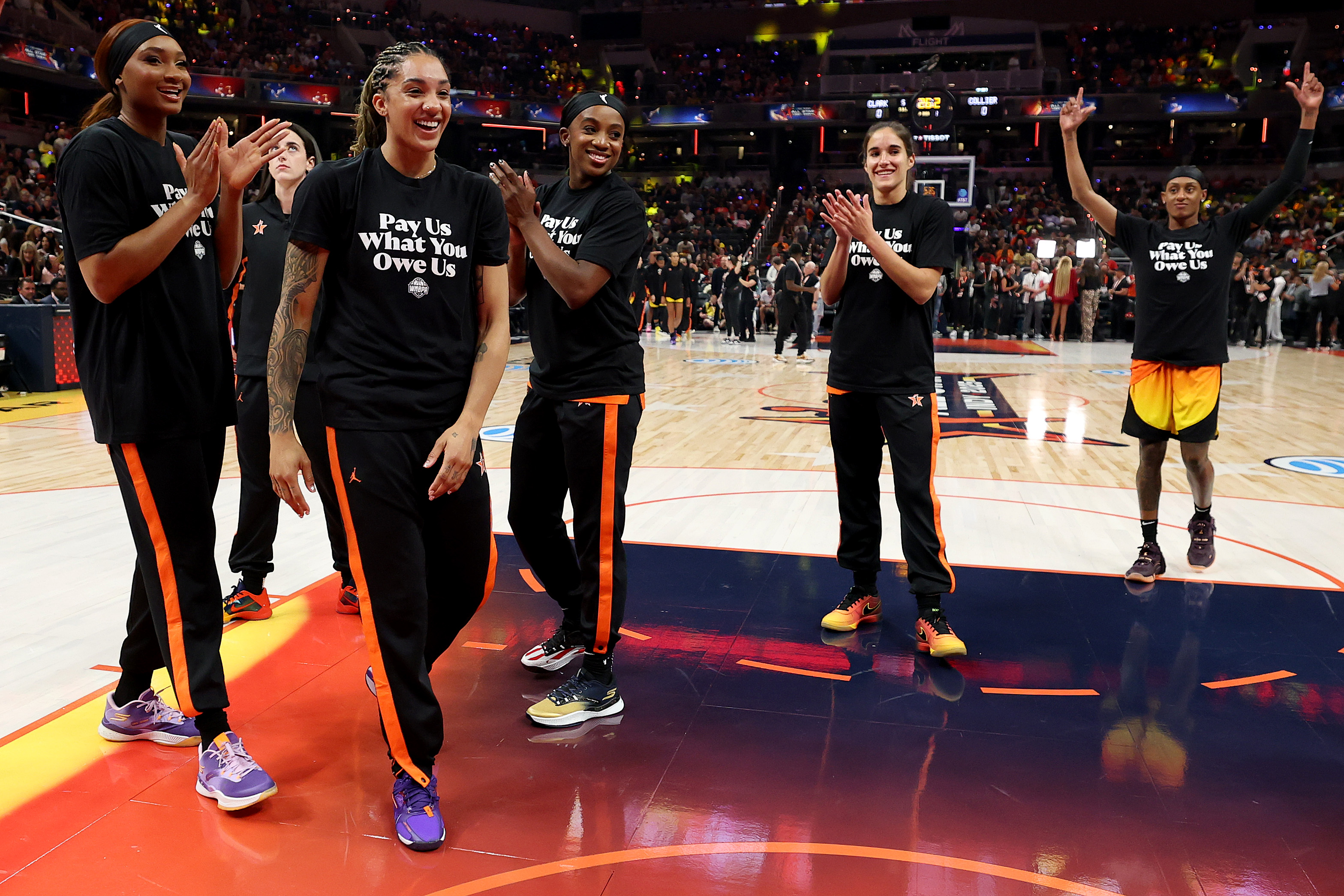
Kiki Iriafen, Gabby Williams, Jackie Young, Sonia Citron, and Brittney Sykes all all play for different WNBA teams during the regular season, but they all warmed up in the statement-making shirts.
(Image credit: Getty Images)
The WNBA’s astronomical growth in recent years has simultaneously boosted its players’ individual profiles and its business cachet. Coach became the league’s official fashion partner this fall, dressing several players for the 2025 draft, while Covergirl, Fenty Beauty, and Glossier have all partnered with teams in the league. Individual players are making history with their contracts: Caitlin Clark signed a reported $28 million sponsorship deal with Nike. According to Relo Metrics, a sponsorship measurement and data platform, the WNBA’s 13 teams collectively drove a record $136 million in earned media value last year. That all propelled the league to secure a $2.2 billion deal with Disney, Amazon, and NBCUniversal for media rights.
What it hasn’t yet done, however, is raise players’ shockingly low salaries. Despite games drawing more than 54 million unique viewers, players like Clark and Wilson earn only a fraction of male basketball players’ salaries. $66,000 is the typical minimum in the WNBA, per NPR; in the NBA, it’s $1.1 million. If players want to earn more, they have to market themselves to fashion, beauty, and lifestyle brands and hope a contract follows.
With an audience of 16,000 in Indianapolis and thousands more watching from home, the W’s stars saw All-Star Weekend as a chance to do more than just showcase their personal style. They reminded the league who is helping it thrive. “We should be paid more and hopefully that’s the case moving forward as the league continues to grow,” Clark said in a press conference, per USA Today. “I think that’s something that’s probably the most important thing that we are in the room advocating about.”
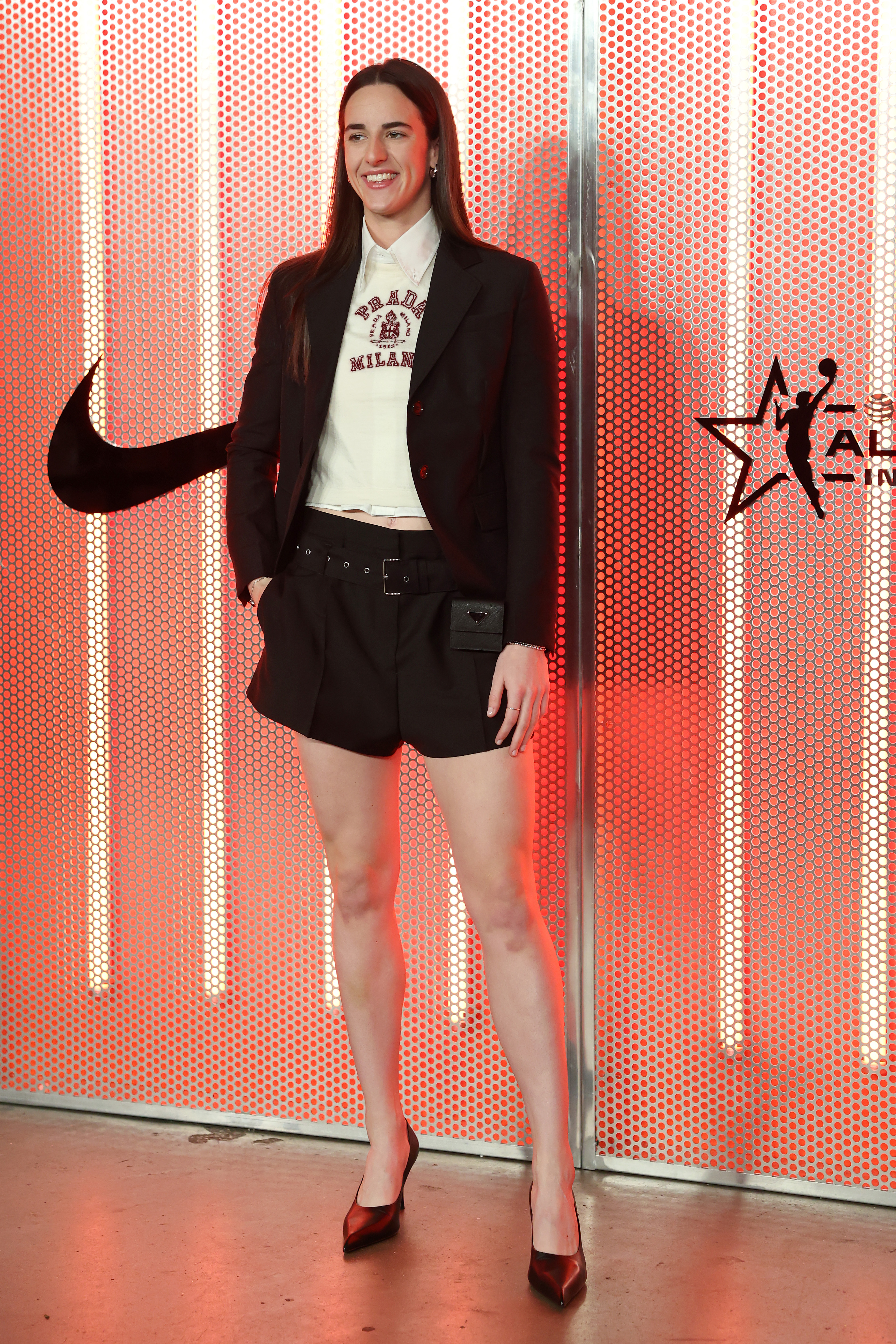
Caitlin Clark wore head-to-toe Prada for her red carpet walk at the 2025 All-Star Weekend.
(Image credit: Getty Images)
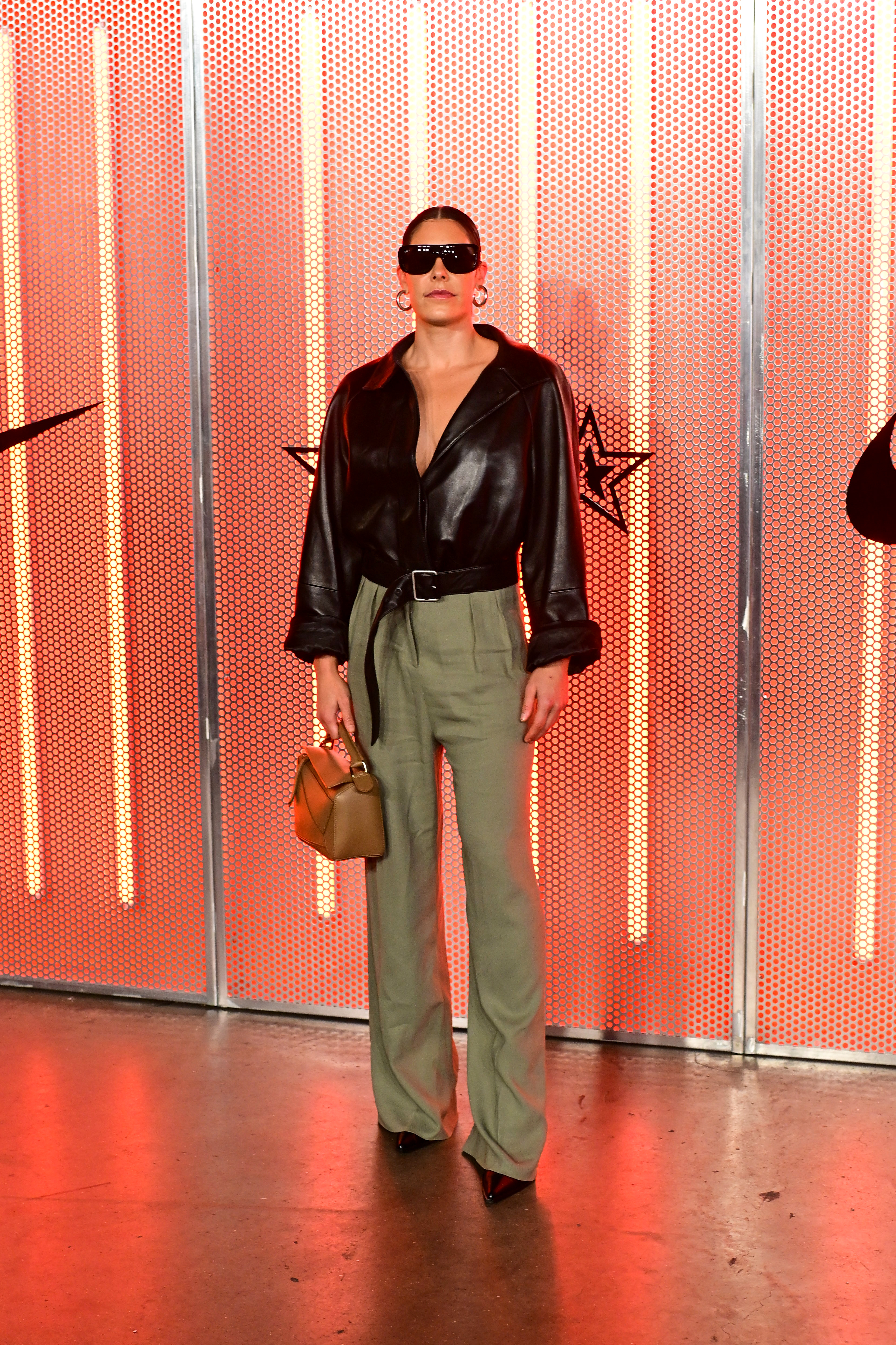
Kelsey Plum teamed up with stylist Karla Welch, debuting their partnership in a look by Loewe.
(Image credit: Getty Images)
Designers who’ve championed the WNBA’s star roster notice the discrepancy between how outside brands treat players and how their league compensates them for all the business they generate. “I don’t want to speak like on behalf of them, but I think it’s kind of like impossible not to acknowledge [their reach],” says Daniella Kallmeyer, who hosted players and fashion personalities at a Cafe Kallmeyer x Nike pop-up over All-Star Weekend.
While players have leveraged fashion to express their personalities, they’ve also had to see it as a business decision: “Given the fact that their salaries are lower than most corporate jobs, and yet they have so many eyes on them, they have to become brands.”
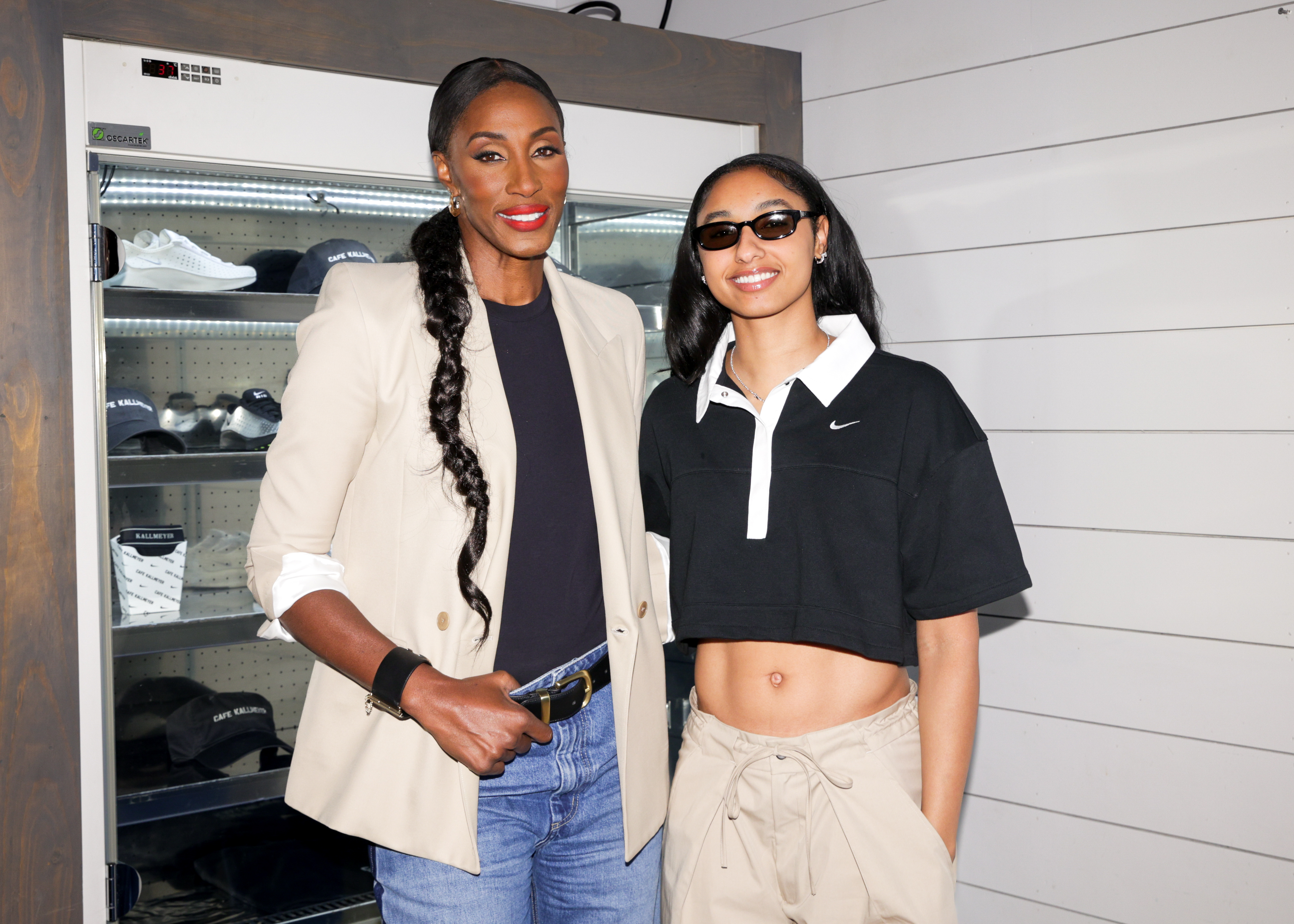
Lisa Leslie and Juju Watkins repped Kallmeyer and Nike at a pop-up bringing the brand to WNBA All-Star Weekend.
(Image credit: BFA.com)
Some players have a natural affinity for fashion, and keeping track of their latest outfits is its own spectator sport. Athletes increasingly score invites to cultural events like the Met Gala and often boast impressive designer credits at industry functions like the ESPY Awards. But landing brand deals or a custom red carpet gown isn’t why anyone joins a professional sports league. It’s not why fans like Kallmeyer make time to watch a game in NYC or attend All-Star Weekend. They work hard to play the sport they love, and as their shirts say, they deserve fair pay for their efforts.
“People are falling in love with the players and they’re watching because of their personalities as much as their love of the game,” Kallmeyer says. “It’s a clear reason to pay players for higher media deals and increased viewership.”
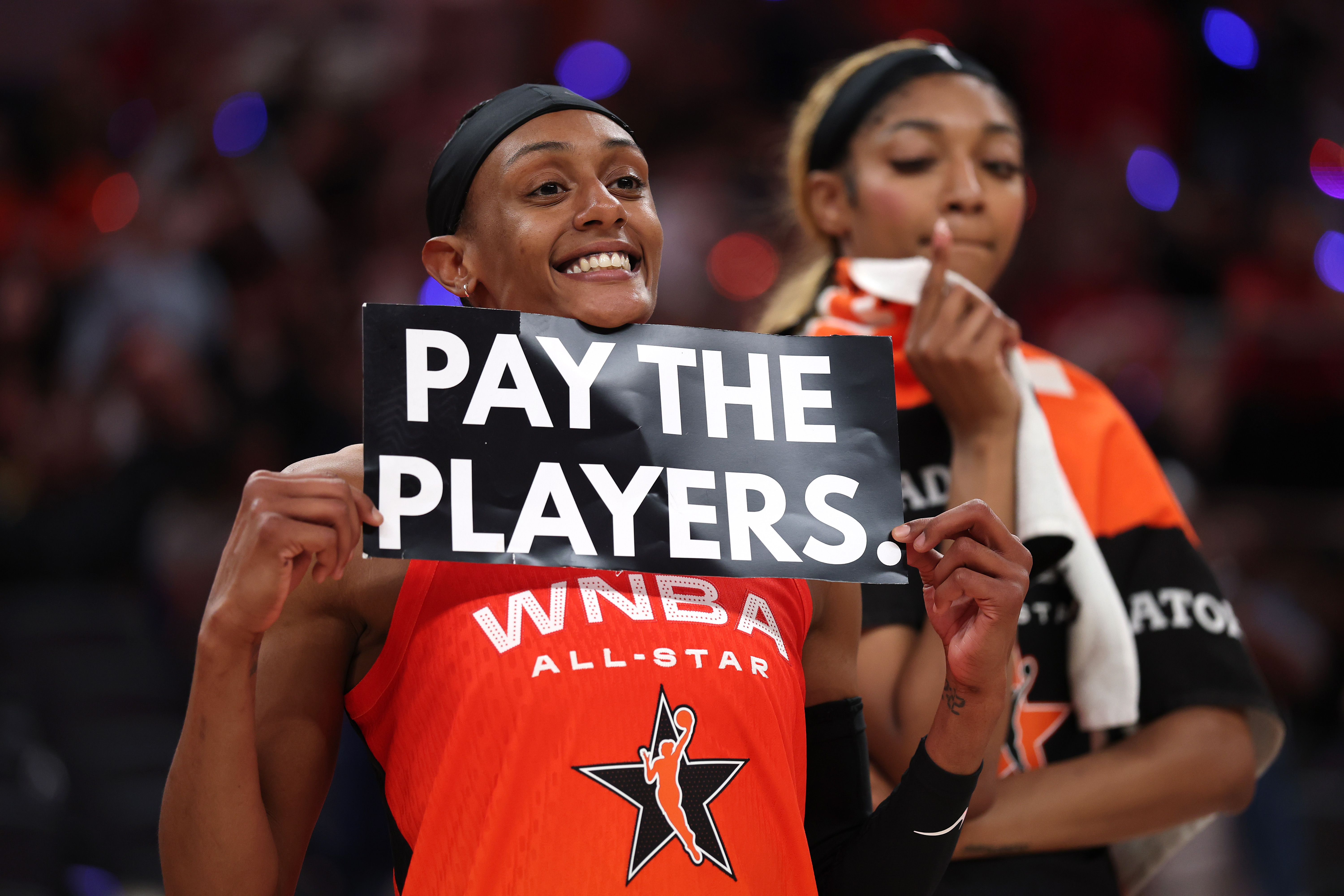
Brittany Syke’s sign conveyed the league’s bottom line: “Pay the players.”
(Image credit: Getty Images)
There’s a deadline in October for a new salary contract; reports from the weekend say players aren’t satisfied with the league’s proposed salaries so far. Looking ahead, fans are just as adamant that players get what they deserve in the meantime. After Saturday night’s game, ESPN reports that the sold-out crowd chanted two words while Napheesa Collier was awarded her MVP trophy by WNBA Commissioner Cathy Engelbert: “Pay them!” And if they want to spread the message further, the players’ “Pay Us What You Owe Us” shirts are currently for sale online.
